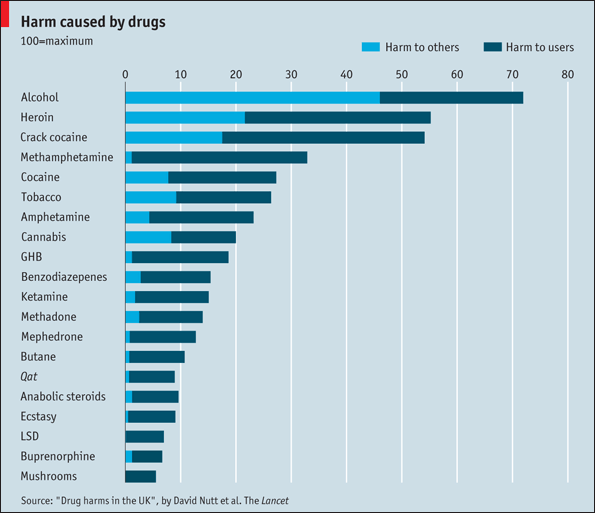Drug Policy
Showing Original Post only (View all)See how the conversation has changed in the U.S. [View all]
The Partnership for a Drug-Free America has released a new survey poll related to parents and their views on marijuana. For some background, this group began in the 1980s in response to Reagan's War on Drugs. They're an advertising group that decided to turn its efforts toward the issue of drug use. Their first, and perhaps most famous, commercial was the egg in the frying pan image with the slogan, "This is your brain on drugs" from 1987. This is probably one of the most famous PSAs ever.
By 2005, this organization had moved from "Drugs fry your brain" to "Drug Addiction is a Disease" - iow, they moved from punitive campaigning to health campaigning.
In 2007, in response to studies that indicated that parents who have ongoing conversations with their children about drug use and possible risks showed those children were 50% less likely to use drugs, the organization asked adults to talk to their children.
Now, in 2013, the Partnership for a Drug-Free America is acknowledging that legalization is here and their task is to note that parents support regulation of marijuana.
...just like the majority of those who have worked to change the law for decades, in spite of the zero-tolerance stance for adults among prohibitionists.
http://www.drugfree.org/newsroom/press-release-marijuana-survey
(Full report here: http://www.drugfree.org/newsroom/research-publication/marijuana-survey-full-report)
The PDFA survey found that half of all parents among the 1600 in the survey had used marijuana in the past.
72% of the moms support legalized medical marijuana, while 44% support decriminalization while 67% of dads support legal mmj and 47% support decriminalization.
- Medicinal marijuana refers to marijuana being made available through licensed medical centers only to individuals who have a doctor’s recommendation to possess and use marijuana to treat a medical condition.
- Decriminalization of marijuana refers to changing laws so that those caught with marijuana would receive a warning or fine (much like a speeding ticket), but would not face jail time.
- Legalization of marijuana refers to changing laws so that anyone over a certain age would be permitted to possess, buy, sell, and use marijuana for recreational purposes within the limits of the law (much like alcohol).
And this is the point - and the reason the conversation about marijuana has changed in this nation in a relatively short amount of time. Information access and discussion among citizens, rather than pronouncements from bureaucrats, or commercials on tv, is what has changed this conversation. Prior to internet information sharing, someone had to seek out sources that might challenge the conventional "wisdom" repeated by politicians and the news media, or by educators led by LEO drug programs, or by studies skewed to achieve pre-ordained results, whose methods were hidden for this same reason.
The PDFA recognizes that support for changes in marijuana policy among parents is widespread. To steer the conversation to the realms in which it has operated for so long, the group is shifting its focus on issues regarding access to teens. Since adults, in general, favor regulating access to substances like alcohol, etc. this is nothing new - what is new is acknowledging marijuana belongs in that same category of regulated substances.
To remain relevant, the organization is shifting concerns to proper information sharing about marijuana, rather than pretending marijuana has no place within society among consenting adults.
As far as harm to society, however, the organization might find a better focus for their concern from alcohol use, according to this Lancet survey:

And, overall, in terms of the entire issue of drug use in the U.S., the greatest public service someone could offer would be a look at the impact of economic policies, educational and employment opportunities, and the impact of class and race assumptions upon outcomes for various drug treatment policies.
But this would require structural analysis, rather than isolation of the issue of addiction and its consequences upon individuals who try to negotiate this structure.